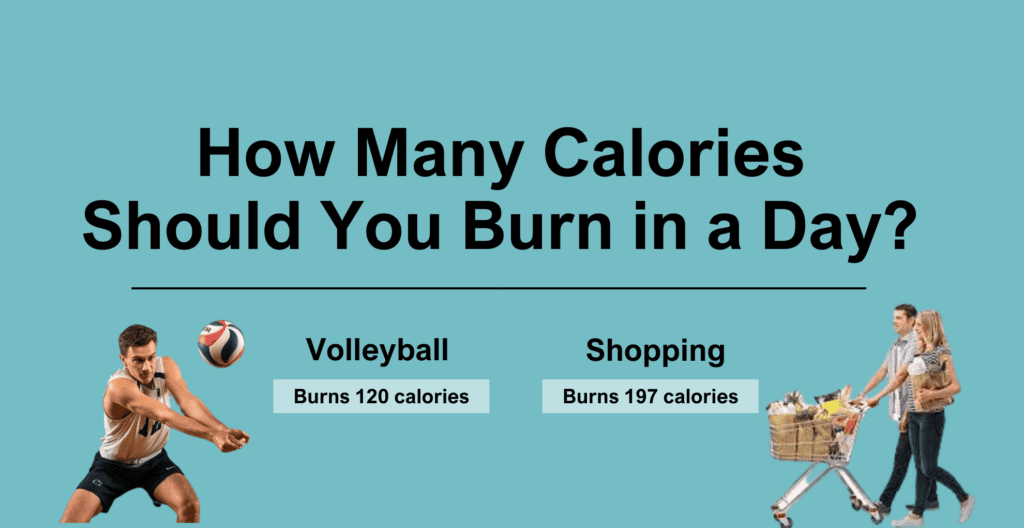Understanding How many calories should i burn a day each day is key to achieving a healthy balance between weight loss, maintenance, and even weight gain. Calorie burn varies from person to person based on factors like age, gender, body composition, activity level, and fitness goals. So, if you’re wondering, “How many calories should I burn a day?” you’re in the right place. This article dives deep into the factors that impact calorie burn, how to calculate your daily requirements, and practical tips to reach your fitness goals.
Why Is Calorie Burn Important?

How many calories should i burn a day are the energy our bodies need to function. We burn calories even when we’re sitting, sleeping, or breathing. The number of calories burned daily plays a vital role in managing body weight, maintaining energy levels, and supporting overall health. Balancing calorie intake with calorie burn is essential to avoid weight gain or loss unintentionally.
For instance:
- To lose weight, you need to burn more calories than you consume.
- To gain weight, you need to consume more calories than you burn.
- For weight maintenance, you need a balance between the calories burned and the calories consumed.
Factors Influencing How Many Calories You Should Burn Daily
Everyone’s body is different, so the calorie burn isn’t one-size-fits-all. Here are some key factors that influence how many calories you should aim to burn:
- Basal Metabolic Rate (BMR): This is the number of calories your body needs to function at rest. BMR varies depending on age, gender, and body composition.
- Activity Level: Physical activity, including exercise and daily movements like walking or climbing stairs, significantly increases calorie burn.
- Body Composition: Muscle burns more calories at rest than fat, so people with a higher muscle mass may burn more calories.
- Age and Gender: Younger people and men tend to have a higher metabolic rate, meaning they often burn calories faster than older adults or women.
Calculating Your Daily Calorie Burn
To figure out how many calories you should burn each day, it’s important to first understand your BMR and your Total Daily Energy Expenditure (TDEE).
- Basal Metabolic Rate (BMR)
Your BMR is the baseline for the number of calories you’d burn if you did nothing all day. It accounts for about 60-70% of the calories you burn daily. Here’s how to estimate your BMR using the Harris-Benedict formula:
- For Men: BMR = 88.362 + (13.397 x weight in kg) + (4.799 x height in cm) – (5.677 x age in years)
- For Women: BMR = 447.593 + (9.247 x weight in kg) + (3.098 x height in cm) – (4.330 x age in years)
- Total Daily Energy Expenditure (TDEE)
Once you know your BMR, you can calculate your TDEE, which is the total number of calories you need based on your daily activity level. Here’s a breakdown of activity levels:
Activity LevelTDEE Calculation
Sedentary (little/no exercise) BMR x 1.2
Lightly active (light exercise) BMR x 1.375
Moderately active (moderate exercise) BMR x 1.55
Very active (hard exercise) BMR x 1.725
Super active (intense exercise) BMR x 1.9
Example Calculation:
Let’s say a 30-year-old woman weighs 65 kg, is 165 cm tall, and exercises moderately.
- Calculate BMR:
- BMR=447.593+(9.247×65)+(3.098×165)−(4.330×30)BMR = 447.593 + (9.247 \times 65) + (3.098 \times 165) – (4.330 \times 30)BMR=447.593+(9.247×65)+(3.098×165)−(4.330×30)
- BMR≈1,437BMR ≈ 1,437BMR≈1,437 calories
- Calculate TDEE:
- TDEE=BMR×1.55TDEE = BMR \times 1.55TDEE=BMR×1.55
- TDEE≈2,227TDEE ≈ 2,227TDEE≈2,227 calories
So, this woman needs around 2,227 calories daily to maintain her weight. If she wants to lose weight, she would need to burn more than this amount or reduce her calorie intake.
How Many Calories to Burn for Weight Loss?
If weight loss is your goal, creating a calorie deficit is key. Most health professionals recommend a moderate daily deficit of 500 calories, which can lead to a weight loss of about 1 pound per week.
- Small Deficit (200-300 calories): Gradual weight loss with minimal dietary or lifestyle changes.
- Moderate Deficit (500 calories): Approximately 1 pound of weight loss per week.
- Large Deficit (750-1000 calories): Faster weight loss but may be challenging to sustain.
How to Burn Calories Through Exercise
Exercise is an effective way to burn extra calories. Different activities burn calories at different rates. Here’s a look at how many calories various exercises burn for an average 155-pound person in 30 minutes:
ActivityCalories Burned in 30 Minutes
Running (6 mph) 372
Cycling (moderate) 298
Swimming (moderate) 223
Walking (4 mph) 140
Yoga 149
Jumping rope 372
Combining various activities keeps exercise routines interesting and helps target different muscle groups, which can improve both strength and endurance.
Benefits of Knowing Your Calorie Burn
Knowing your daily calorie burn isn’t just helpful for weight management—it also has a range of other benefits:
- Energy Balance: Understanding your needs helps prevent fatigue and boosts overall energy.
- Healthier Body Composition: Burning enough calories helps maintain a leaner body and a healthy balance of muscle and fat.
- Improved Fitness Goals: By tracking calorie burn, you can set realistic fitness goals and make adjustments as needed.
Tips for Increasing Your Daily Calorie Burn
Want to boost how many calories you burn each day? Here are some simple tips:
- Move More Throughout the Day: Standing, stretching, and moving frequently, even in short bursts, adds up over time.
- Incorporate Strength Training: Building muscle increases your resting calorie burn since muscle tissue requires more energy.
- Add High-Intensity Interval Training (HIIT): Short bursts of high-intensity exercise can elevate your calorie burn even after you finish exercising.
- Stay Hydrated: Drinking water boosts metabolism slightly and may help you feel more energized to be active.
Calories Burned at Rest: How Does It Add Up?
You might be surprised to learn that even activities like sitting and sleeping burn calories, thanks to BMR. Here’s a breakdown:
- Sitting: Burns around 60-130 calories per hour depending on body weight.
- Sleeping: Averages about 50-80 calories per hour, as the body still requires energy for essential functions.
- Standing: Burns 100-200 calories per hour as it engages more muscles than sitting.
These low-intensity calorie burns contribute to your daily total and can add up over time.
The Importance of a Balanced Diet
Achieving the right calorie balance isn’t just about exercise—it also depends on what you eat. A healthy, balanced diet that provides the right amount of nutrients is essential to support your body’s needs. Here are some nutrition tips to complement your calorie burn:
- Protein-Rich Foods: Protein helps build muscle, and muscle tissue burns more calories at rest.
- Healthy Carbs: Whole grains, fruits, and vegetables provide the energy needed for exercise.
- Healthy Fats: Nuts, seeds, and avocados offer energy and help with nutrient absorption.
Tracking Your Calorie Burn
Using tools like fitness trackers or smartphone apps can be incredibly helpful. Devices like Fitbit, Apple Watch, or apps like MyFitnessPal help you monitor your steps, and workouts, and even estimate daily calorie burn based on your activity level. Tracking lets you stay accountable, notice trends, and make adjustments as needed.
How Many Calories Should I Burn a Day? The Bottom Line
So, how many calories should I burn a day? The answer depends on your goals, lifestyle, and individual factors. For weight maintenance, aim to match your TDEE. For weight loss, create a calorie deficit through exercise or diet changes. For weight gain, aim for a slight calorie surplus.
Remember, finding the right balance takes time. Experiment with different activities, stay consistent and make adjustments as your needs change. With the right approach, you’ll find your way to a balanced and healthier lifestyle.
Now that you have the know-how, you’re all set to tackle your calorie-burning goals with confidence!




